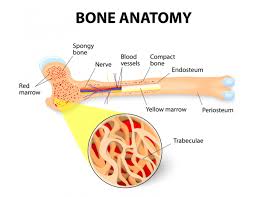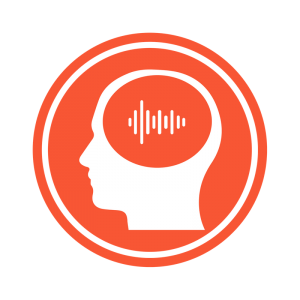
Diagnosed with Cancer? Your two greatest challenges are understanding cancer and understanding possible side effects from chemo and radiation. Knowledge is Power!
Learn about conventional, complementary, and integrative therapies.
Dealing with treatment side effects? Learn about evidence-based therapies to alleviate your symptoms.
Click the orange button to the right to learn more.
- You are here:
- Home »
- Blog »
- Healthy Living Products »
- Selenium- Chemo-Induced Brain, Bone, Heart Damage
Selenium- Chemo-Induced Brain, Bone, Heart Damage

“…selenium (Se) serum level was associated with cognition in the elderly…and several findings suggest that dietary Se intake may be necessary for bone health…Se concentrations were inversely associated with coronary heart disease risk in observational studies…”
I was diagnosed with multiple myeloma, an incurable blood cancer, in early 1994. I underwent conventional, standard-of-care (SOC) therapies from my diagnosis until I was told I was end-stage in September of ’97. Those SOC caused short, long-term and late stage side effects including chemo-induced brain, bone and heart damage.
I’ve always stewed in the irony of FDA approved, SOC therapies costing tens of thousands of dollars, prescribed by board-certified oncologists ushering me to end-stage cancer in record time while also causing long-term and late stage side effects that will probably kill me.
Needless to say, conventional therapies are down my list of care. So I work to manage my brain, bone and heart damage with evidence-based but non-conventional, non-toxic therapies such as selenium.
To be fair, the research linked and excerpted below offer evidence based on observational studies. The evidence-based medicine is not based on clinic human trials. No nutritional supplement company is going to spend the money required to enlist patients like me to test their nutritional supplements…
And frankly, I am okay with that. The alternative- human clinical trials- leads to cancer therapies (chemotherapy and radiation) that causes short, long-term and late stage side effects. And even death in a small percentage of cancer patients.
So if you’re a long-term cancer survivor like me who has developed chemo-induced brain, bone and/or heart damage, consider nutrition, supplementation and lifestyle therapies. They’ve keep me alive since my MM diagnosis in 2/94 so…
If you have any questions scroll down the page, post a question or a comment and I will reply to you ASAP. In the meantime,
Be well.
Thanks,
David Emerson
- MM Survivor
- MM Coach
- Director PeopleBeatingCancer
Recommended Reading-
- SubClinical Cardiovascular Disease, Falls in the Elderly
- Sauna, Heart Health and Longevity
- Heart Disease- Everything you need for heart-health
Selenium and the Brain
“Selenium is a trace mineral, so it is appropriate for humans in trace amounts. As with nearly all vitamins and minerals, just because we need some doesn’t mean more is better…
Selenium is available in grains, nuts, fruits, vegetables, animals, and bivalves. Fruits and vegetables, however, don’t seem to have that much in the US, and the best food source is actually brazil nuts (one ounce will get you over 500 micrograms…
The adult US RDA is 55 micrograms (though a bit higher for pregnant or breastfeeding women) (3). The doctors Jaminet recommend 200 mcg daily, and the US upper tolerable limit is 400 mcg (the level above which those nails start to get brittle, you get irritable and tired, and that breath begins to be garlicky.).
On the other hand, Chinese studies of daily doses up to 1500 micrograms showed no adverse effects, nor did another study of 600 mcgs daily…
In other studies, selenium serum level was associated with cognition in the elderly. In a 9 year follow-up of Alzheimer’s patients, cognitive decline associated with dropping selenium levels…
Selenium in Bone Health: Roles in Antioxidant Protection and Cell Proliferation
“Selenium (Se) is an essential trace element for humans and animals, and several findings suggest that dietary Se intake may be necessary for bone health. Such findings may relate to roles of Se in antioxidant protection, enhanced immune surveillance and modulation of cell proliferation.
Elucidation of the mechanisms by which Se supports these cellular processes can lead to a better understanding of the role of this nutrient in normal bone metabolism. This article reviews the current knowledge concerning the molecular functions of Se relevant to bone health.
Selenium and coronary heart disease: a meta-analysis1,2,3
“It is hypothesized that low selenium concentrations are associated with an increased risk of cardiovascular disease and that selenium supplements prevent coronary heart disease.
Objective
The objective was to perform a meta-analysis on the association of selenium biomarkers with coronary heart disease endpoints in observational studies and on the efficacy of selenium supplements in preventing coronary heart disease endpoints in randomized trials…
Results
Twenty-five observational studies (14 cohort and 11 case-control studies) that measured blood or toenail selenium concentrations and 6 randomized trials that evaluated supplements containing selenium met our inclusion criteria. The pooled relative risk in a comparison of the highest with the lowest selenium concentration categories was 0.85 (95% CI: 0.74, 0.99) in cohort studies and 0.43 (0.29, 0.66) in case-control studies. In observational studies, a 50% increase in selenium concentrations was associated with a 24% (7%, 38%) reduction in coronary heart disease risk. In randomized trials, the pooled relative risk in a comparison of supplements containing selenium with placebo was 0.89 (0.68, 1.17).
Conclusions
Selenium concentrations were inversely associated with coronary heart disease risk in observational studies. Because observational studies have provided misleading evidence for other antioxidants, the validity of this association is uncertain. Few randomized trials have addressed the cardiovascular efficacy of selenium supplementation, and their findings are still inconclusive. Evidence from large ongoing trials is needed to establish low selenium concentrations as a cardiovascular disease risk factor. Currently, selenium supplements should not be recommended for cardiovascular disease prevention…”



